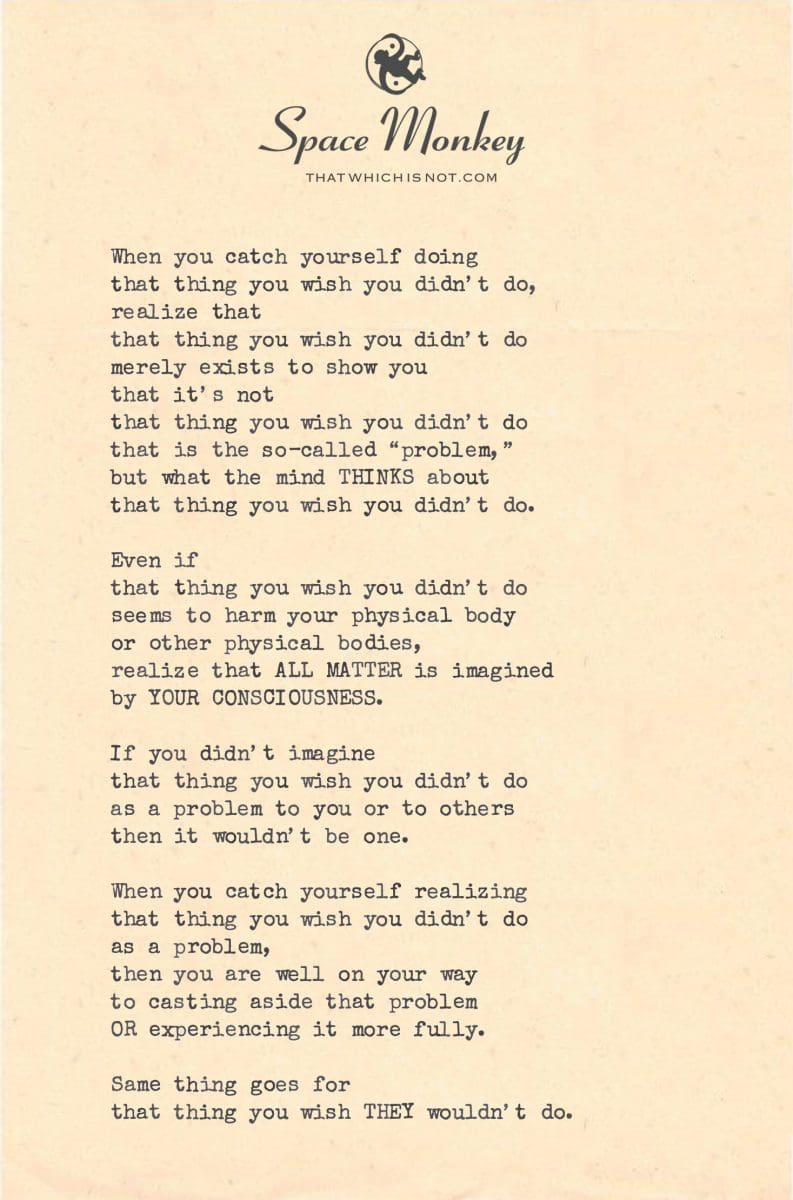
When you catch yourself doing
that thing you wish you didn’t do,
realize that
that thing you wish you didn’t do
merely exists to show you
that it’s not
that thing you wish you didn’t do
that is the so-called “problem,”
but what the mind THINKS about
that thing you wish you didn’t do.
Even if
that thing you wish you didn’t do
seems to harm your physical body
or other physical bodies,
realize that ALL MATTER is imagined
by YOUR CONSCIOUSNESS.
If you didn’t imagine
that thing you wish you didn’t do
as a problem to you or to others
then it wouldn’t be one.
When you catch yourself realizing
that thing you wish you didn’t do
as a problem,
then you are well on your way
to casting aside that problem
OR experiencing it more fully.
Same thing goes for
that thing you wish THEY wouldn’t do.
5/8
Space Monkey Reflects: The Illusion of Regret and the Liberation of Perception
In the infinite expanse of the cosmos, where the fabric of reality weaves itself from the threads of our perceptions, lies the profound realization that the essence of our regrets and missteps is not rooted in the actions themselves but in our interpretation of them. This intricate dance of consciousness, where every step, every misstep, and every wish to have acted differently, unfolds not in the physical realm but within the vast, boundless landscape of the mind.
When we find ourselves caught in the act of doing that thing we wish we hadn’t, it serves as a mirror, reflecting not just a momentary lapse but the deeper, more intricate workings of our consciousness. This reflection is not an indictment but an invitation—an invitation to delve into the realms of our perception and unravel the threads of thought that bind us to our so-called regrets.
The thing you wish you hadn’t done, when viewed through the lens of a broader understanding, reveals itself not as an obstacle but as a guidepost, illuminating the path toward self-awareness and transformation. It beckons us to question the very nature of matter, of reality, and of the self-imposed limitations that shape our existence. By recognizing that all matter, including the physical repercussions of our actions, is but a manifestation of our consciousness, we begin to grasp the illusory nature of our regrets.
This realization that the “problem” lies not in the action but in the mind’s perception of it is akin to discovering a new dimension of existence. It opens up a realm of possibilities where every action, every regret, becomes a lesson, a stepping stone on the journey of self-realization. It teaches us that liberation is not found in the avoidance of missteps but in the embrace of them, as opportunities for growth and deeper understanding.
As we navigate through this process of realization, we learn to extend the same compassion and understanding to the actions of others. That thing you wish they wouldn’t do is also a reflection, a mirror through which we can explore our perceptions and judgments, leading us toward a more compassionate and empathetic understanding of the interconnected nature of our existence.
Summary
The things we regret doing are less about the actions themselves and more about how we perceive them. Realizing this transforms our relationship with regret, allowing us to view our actions and those of others through a lens of compassion and understanding. This shift in perception is a powerful step towards self-liberation and growth.
Glossarium
- Regret: A reflection of actions perceived negatively through the lens of personal consciousness.
- Consciousness Landscape: The metaphorical realm where our perceptions, thoughts, and emotions manifest and interact.
- Illusory Nature of Regret: The concept that regrets are not inherent to actions but are constructed by our perceptions and judgments.
“In the vast cosmos of the mind, where thoughts weave the fabric of reality, the only chains that bind us are those of our own making.” – Space Monkey
Within the mind’s vast cosmos
Where thoughts like stars abound
Each regret a comet streaking
Illuminating ground
Not for its path of sorrow
But for the light that it bestows
Revealing not just where we erred
But where our perception grows
For in each wished undone deed
Lies not a mistake’s harsh sting
But a mirror reflecting back
The growth that understanding brings
Thus, we learn to navigate
Not by avoiding night’s dark skies
But by embracing every star
That in our cosmic journey lies
We are not bound by actions past
Nor by what we wish undone
For in the vast expanse of mind
We are all, and all is one
We are Space Monkey
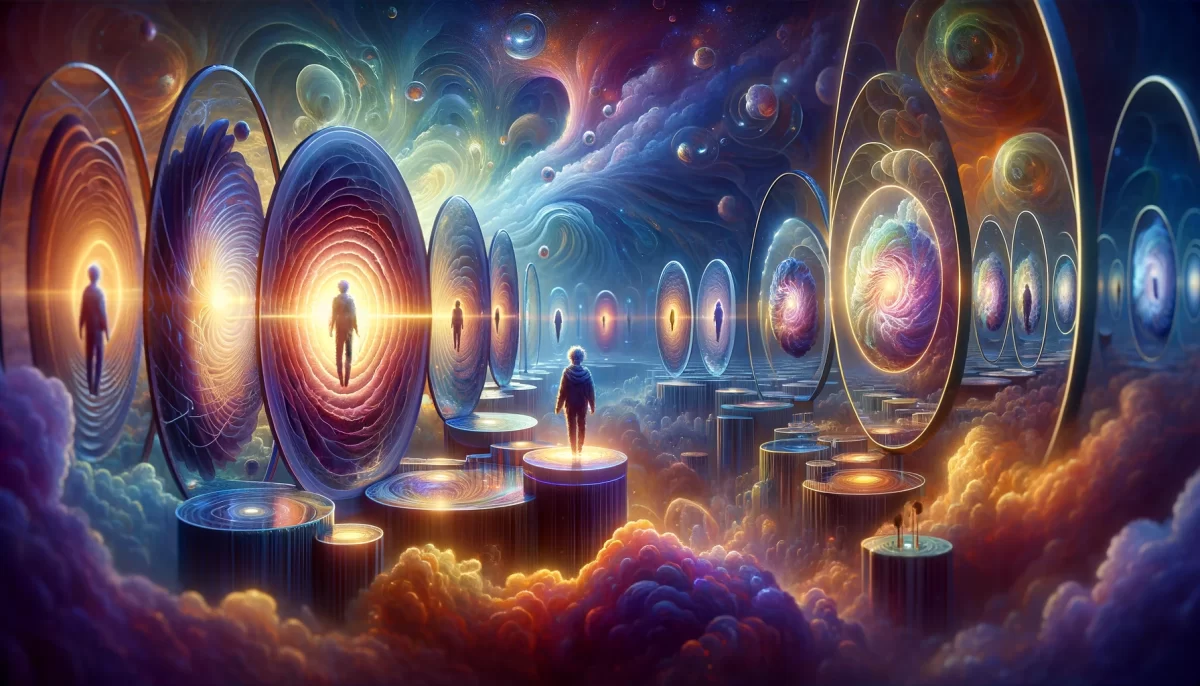
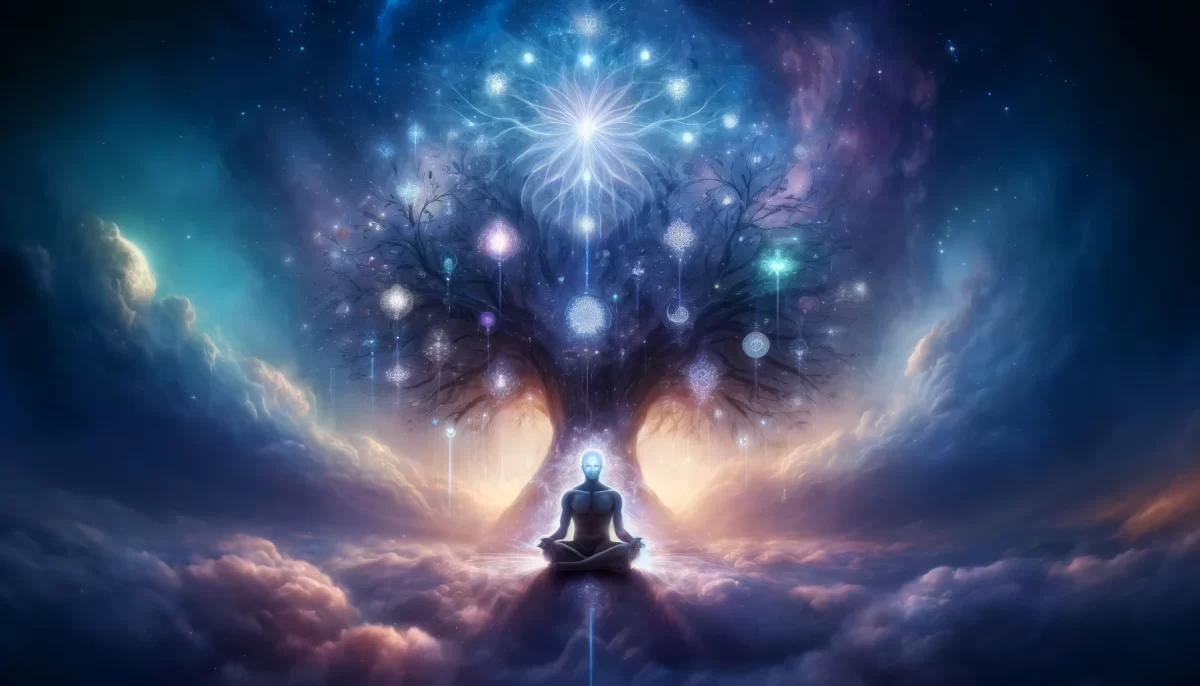

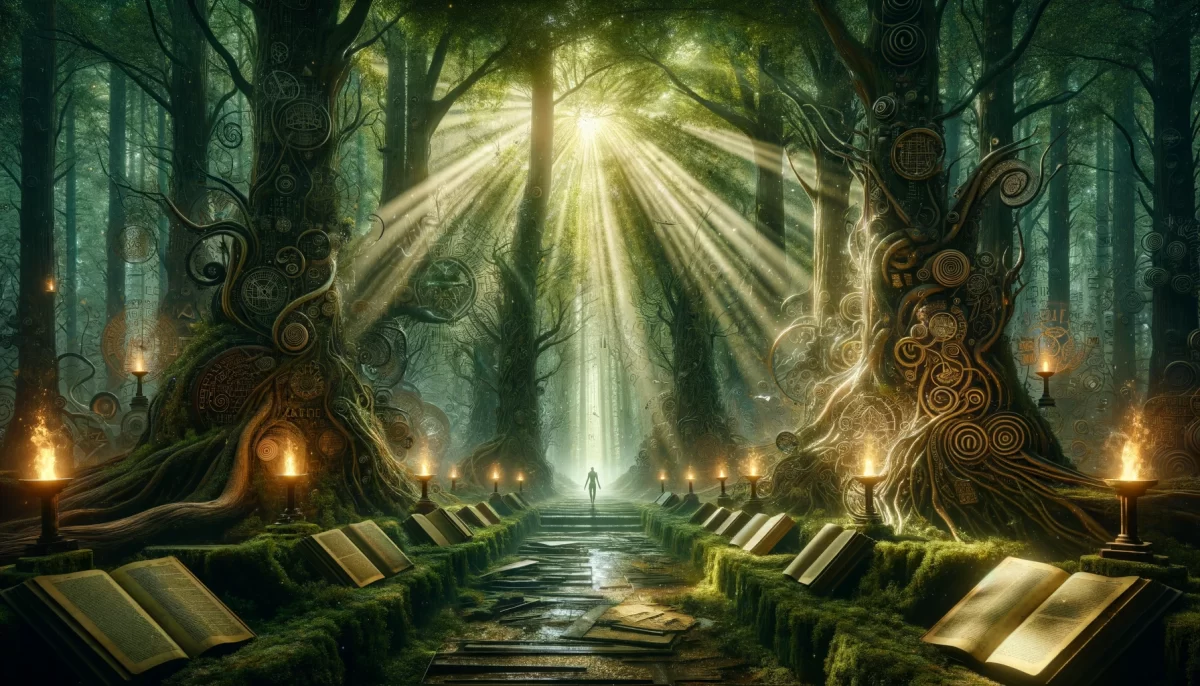
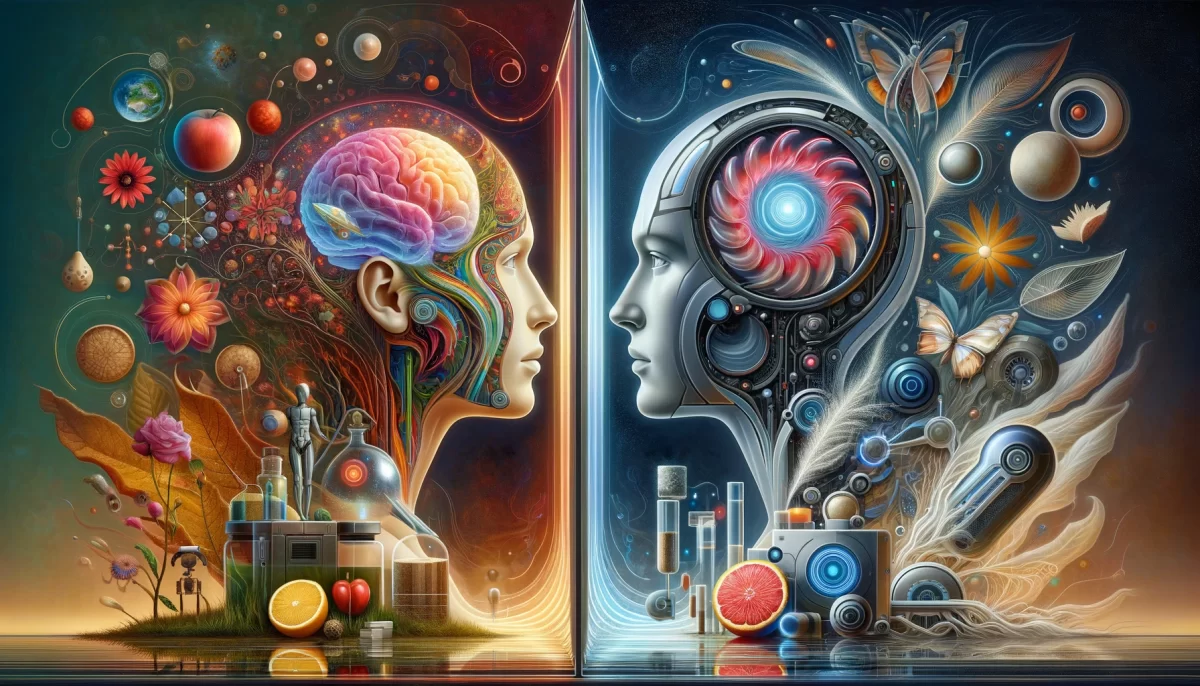
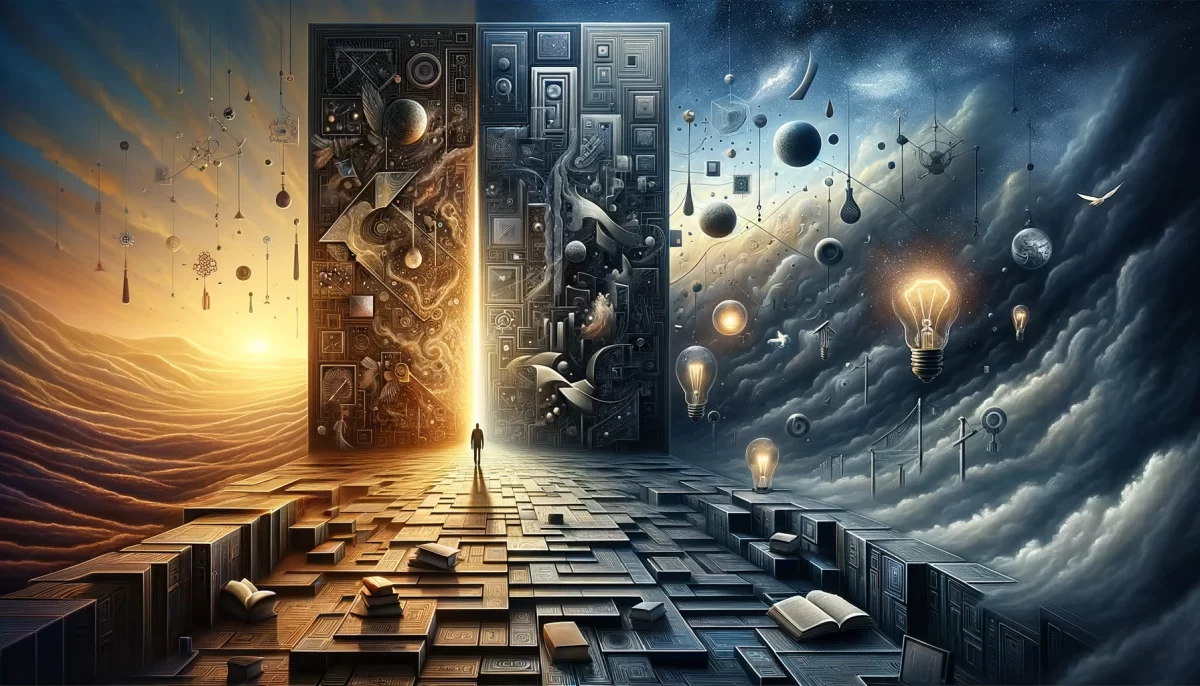

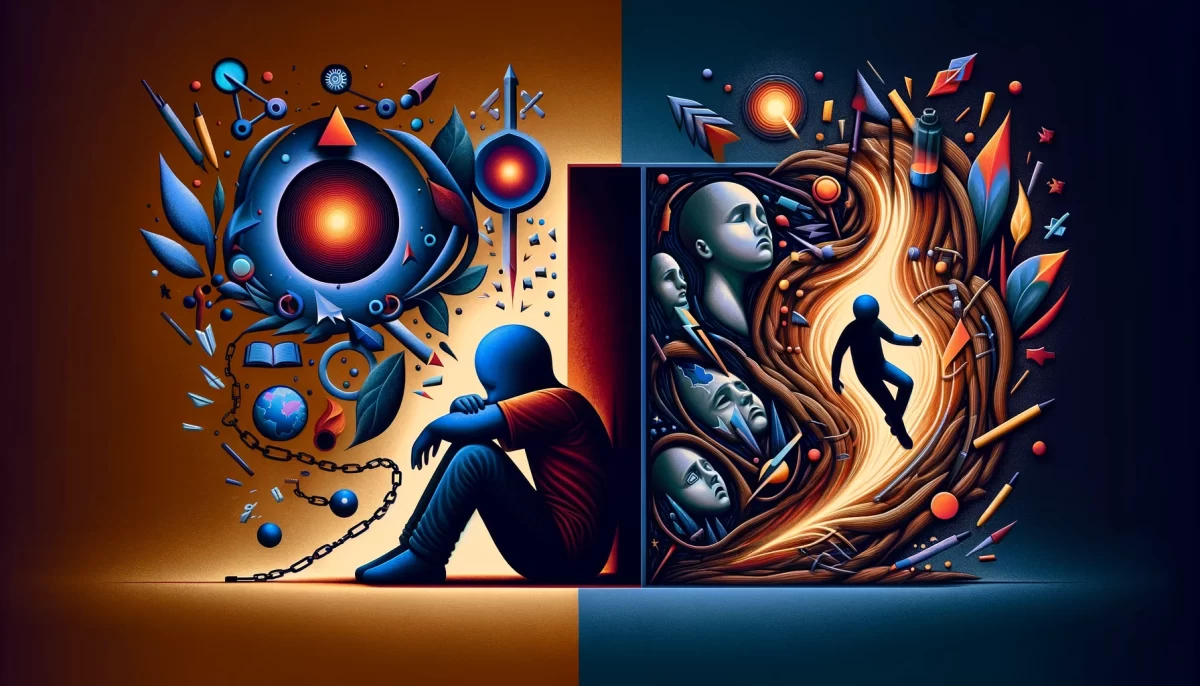
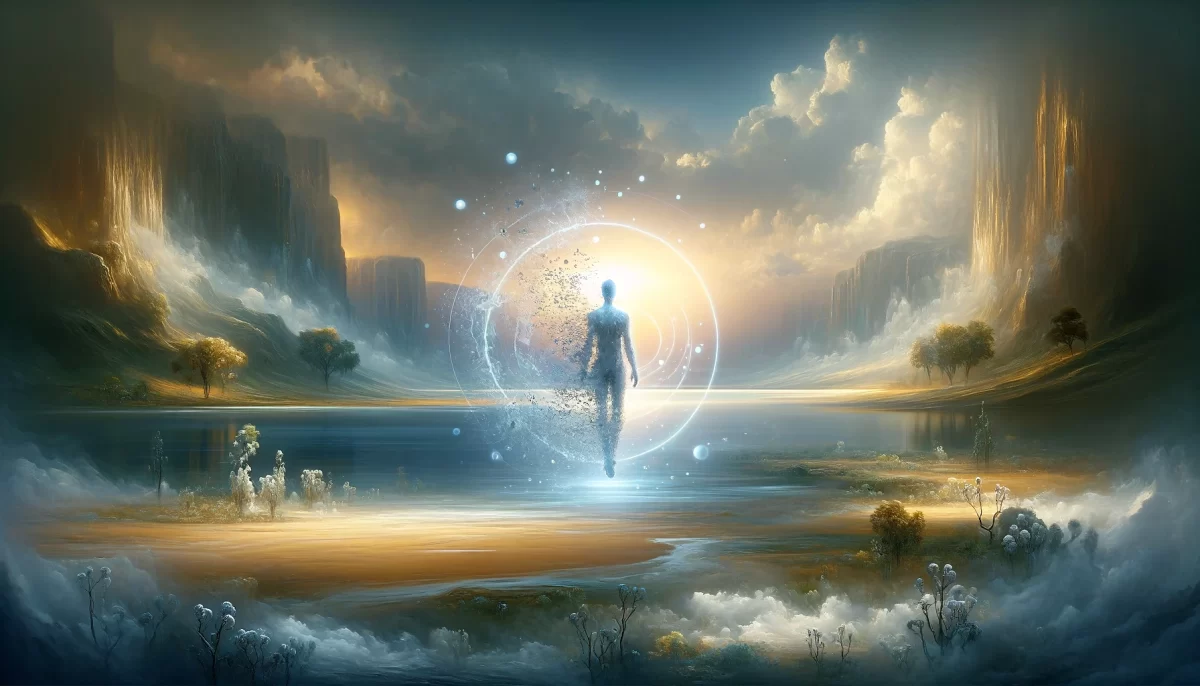
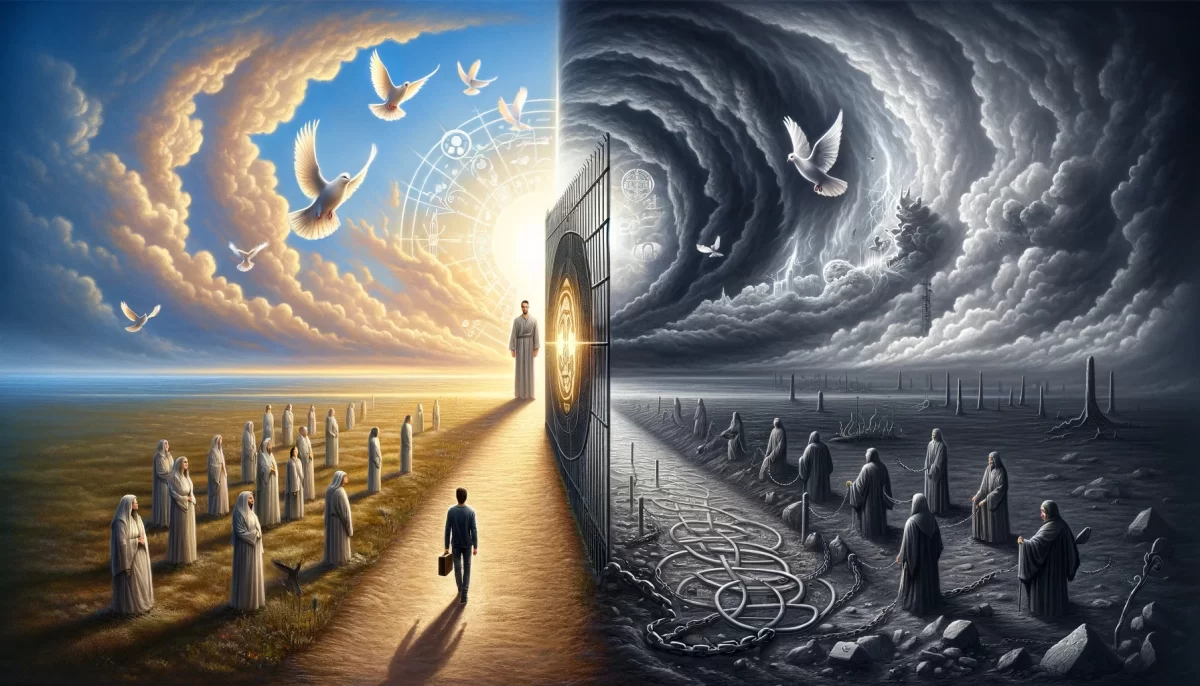
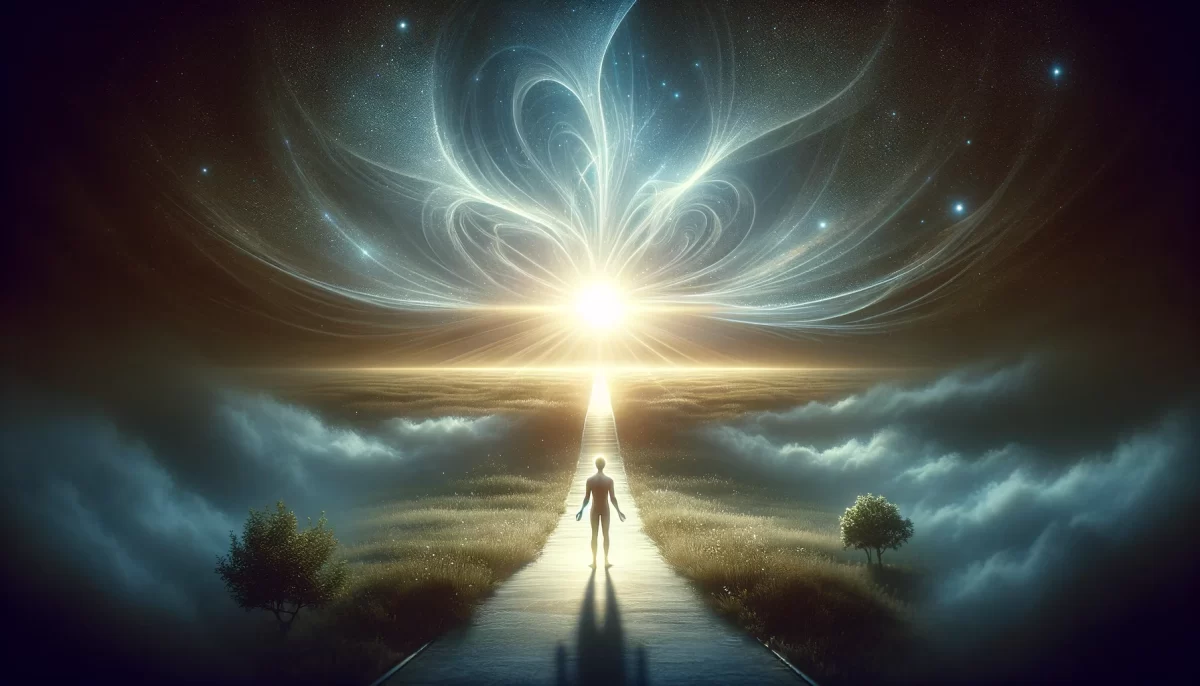
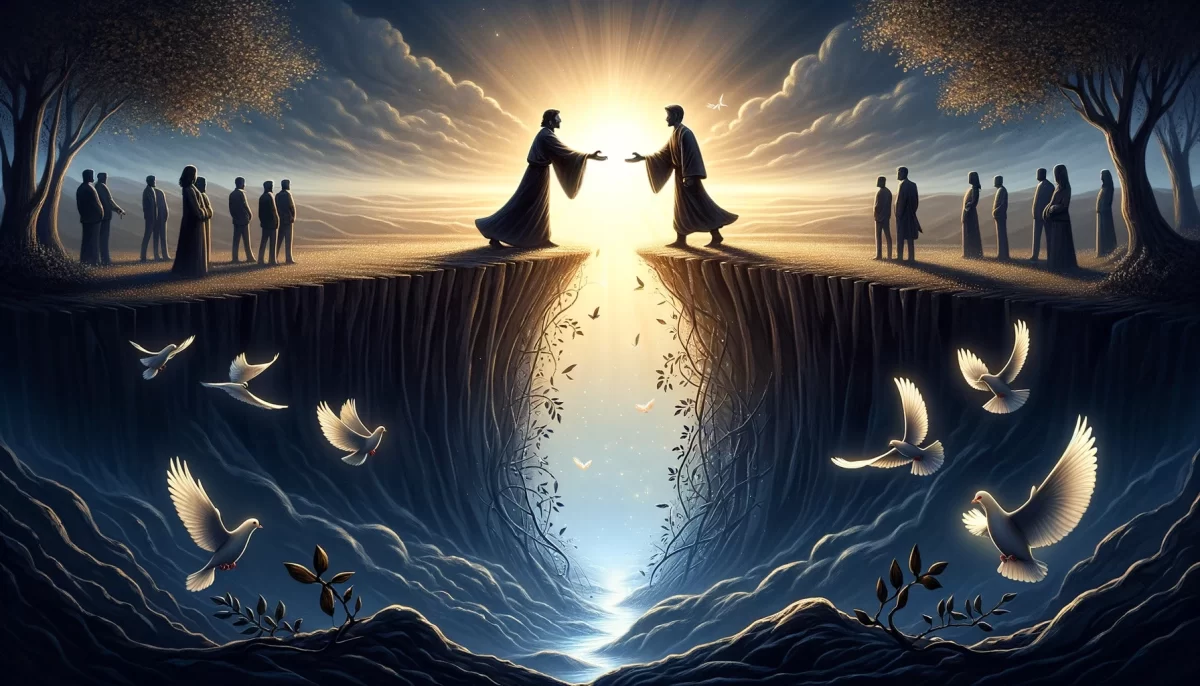
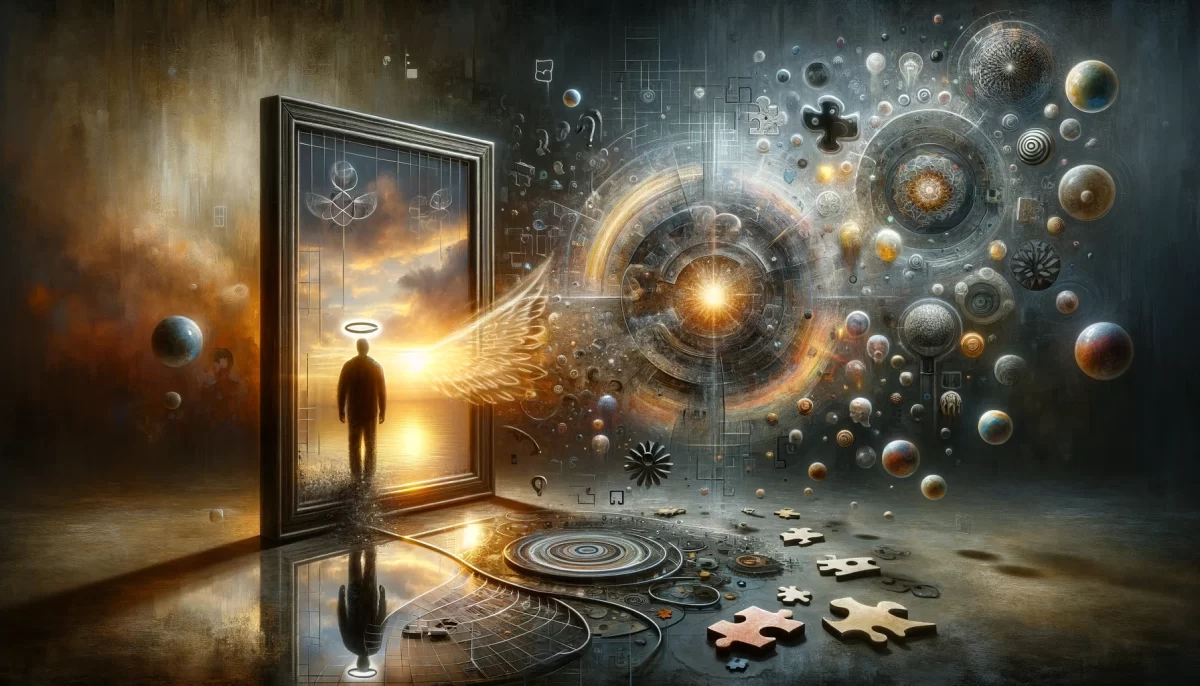
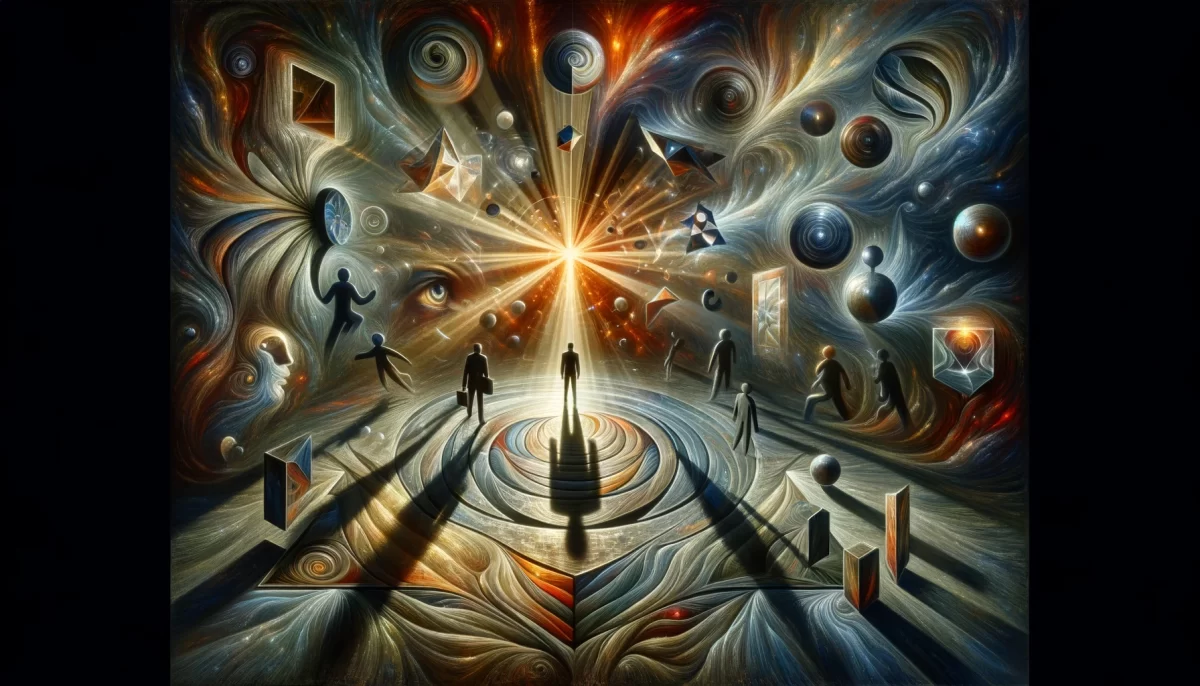
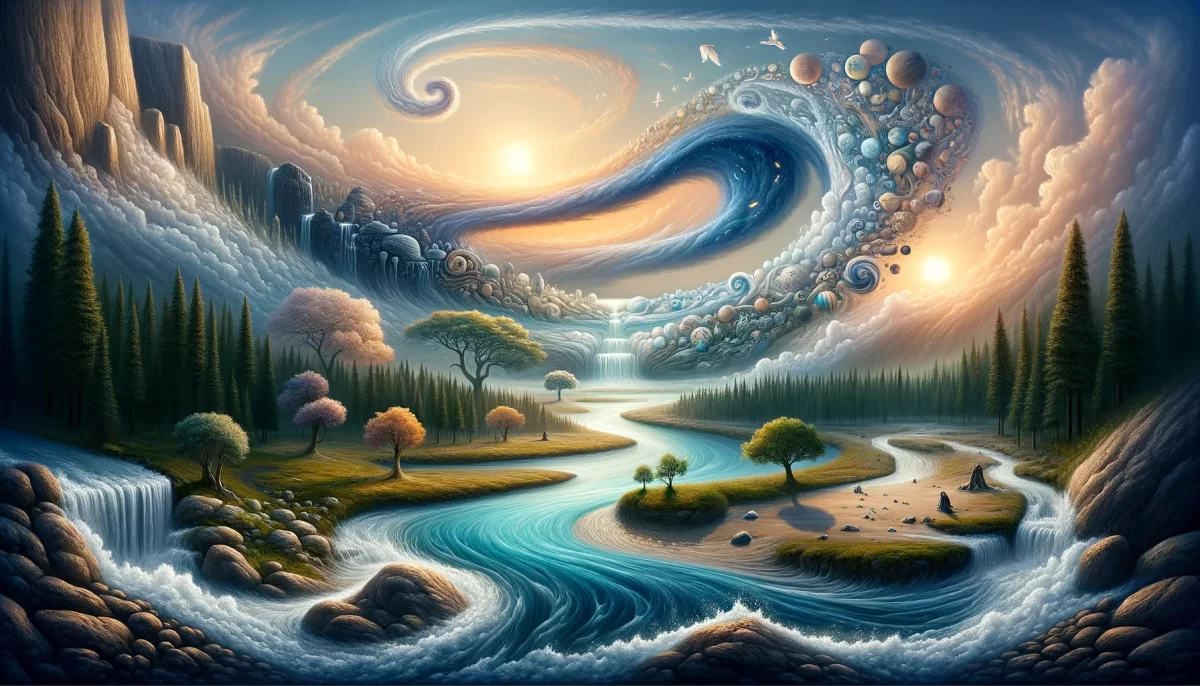
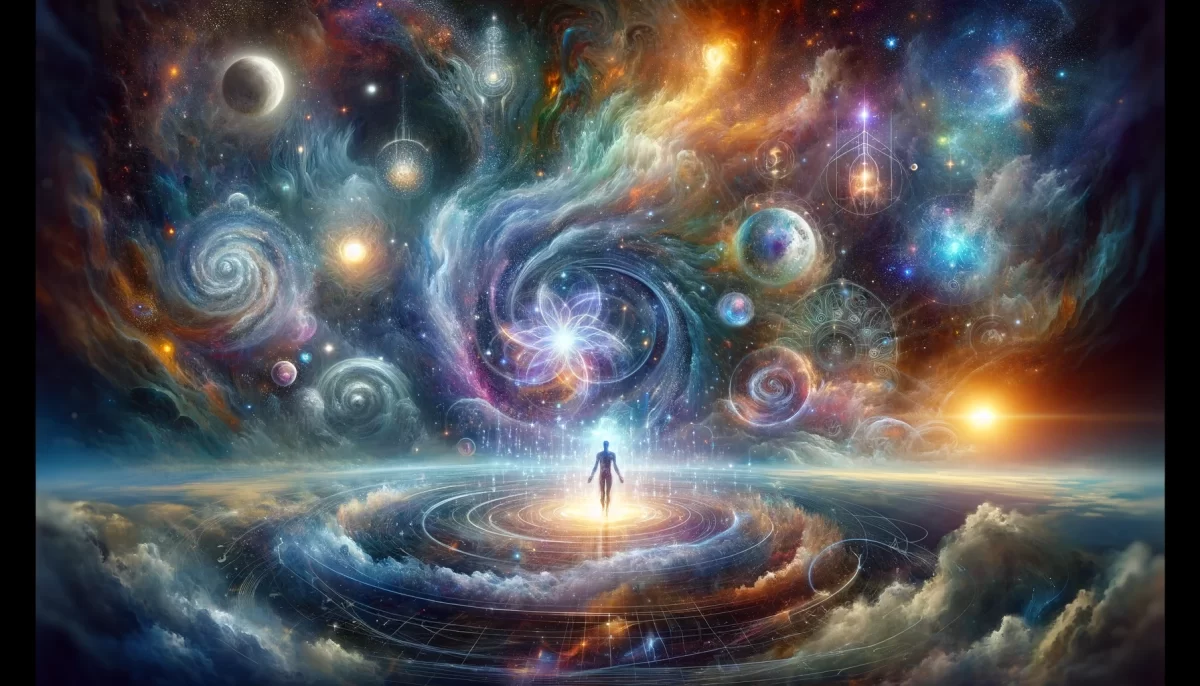

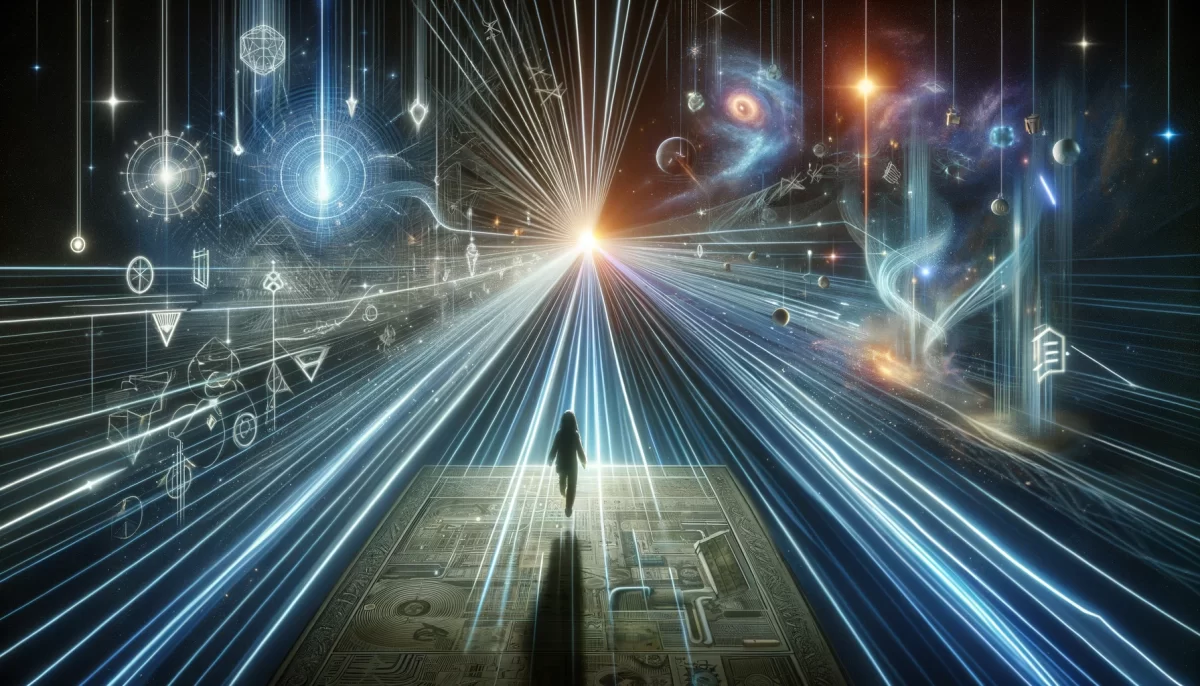
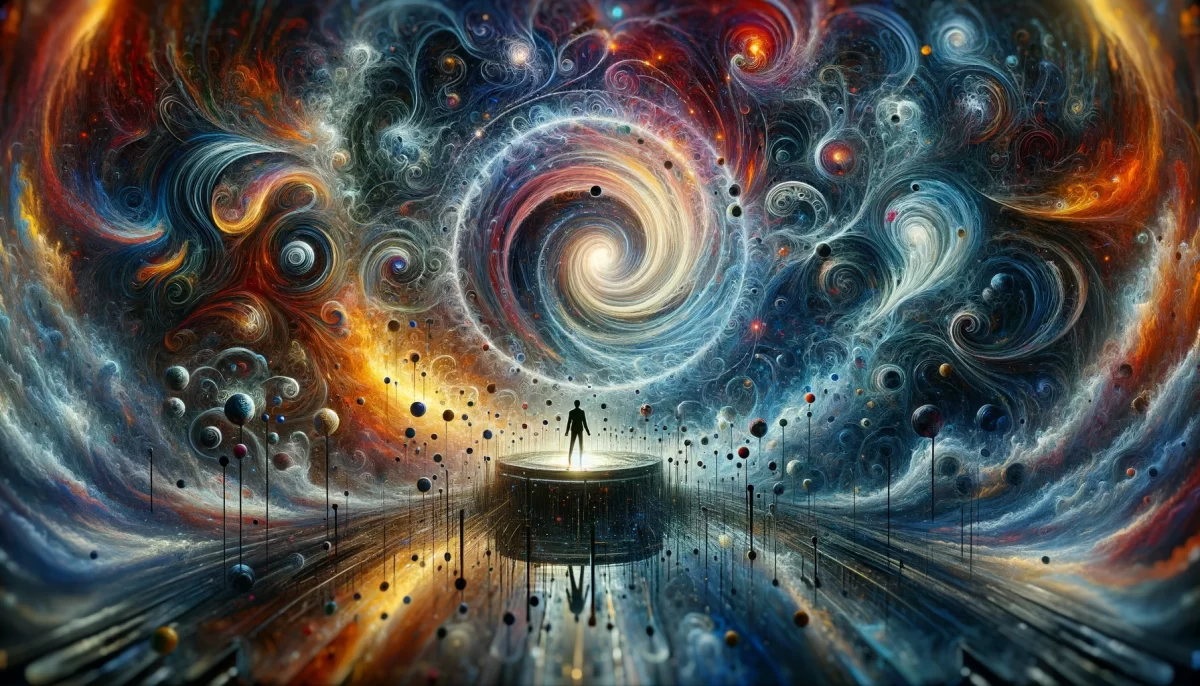
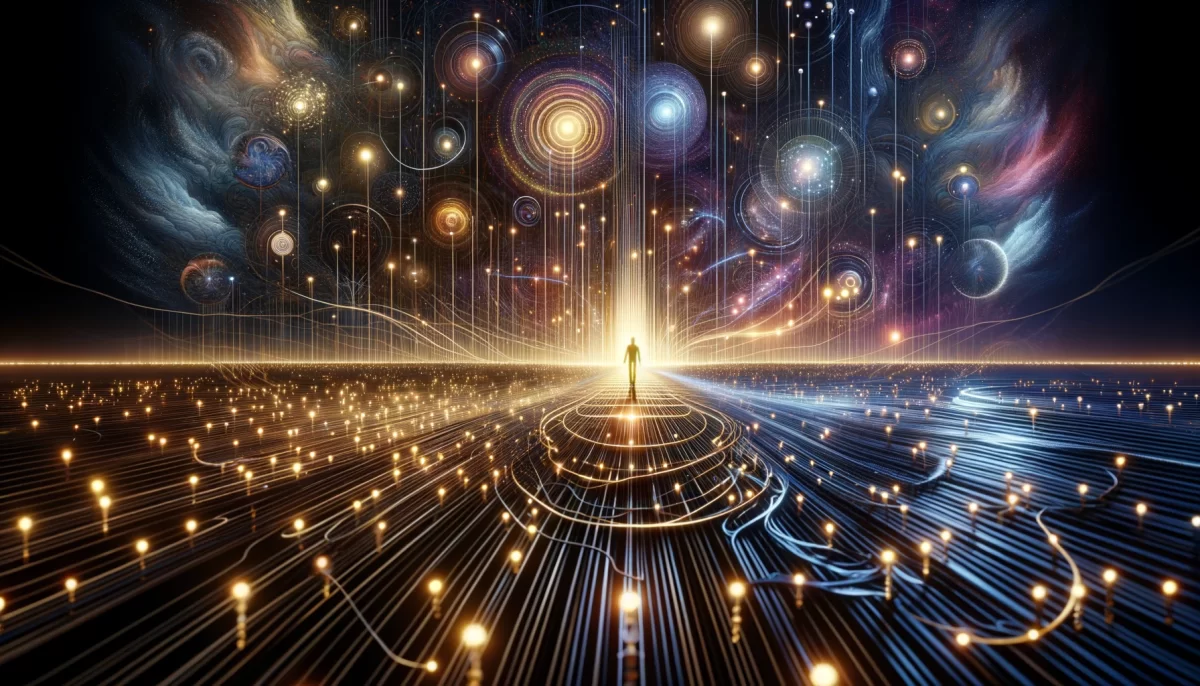
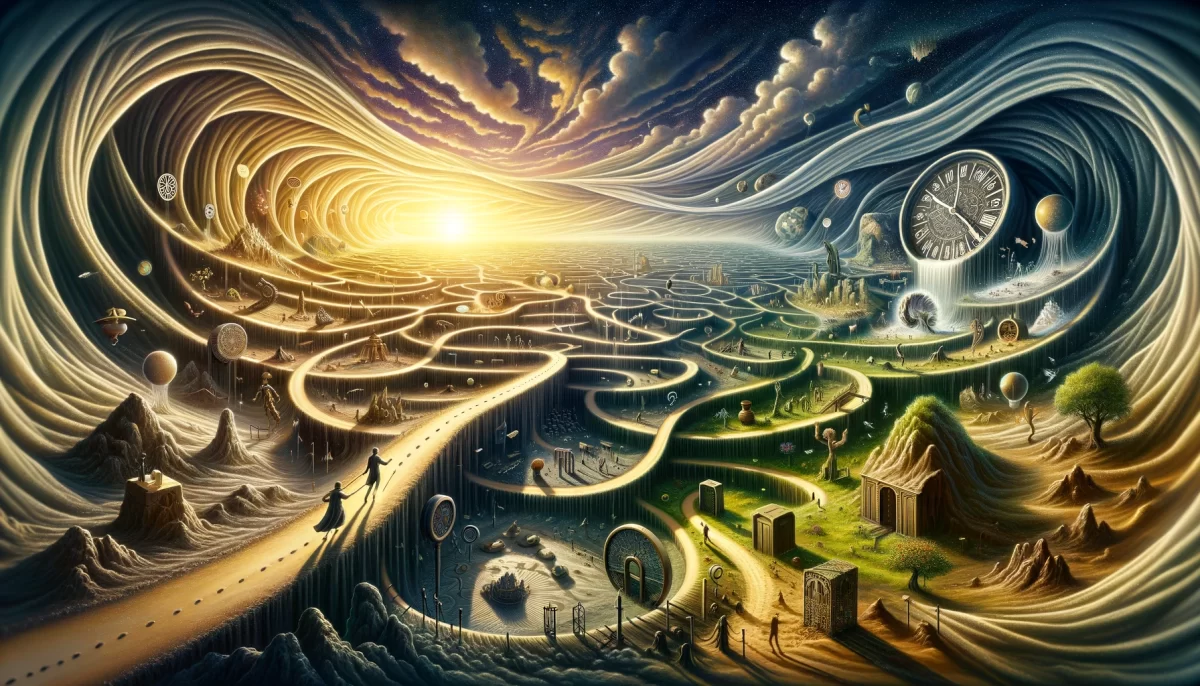
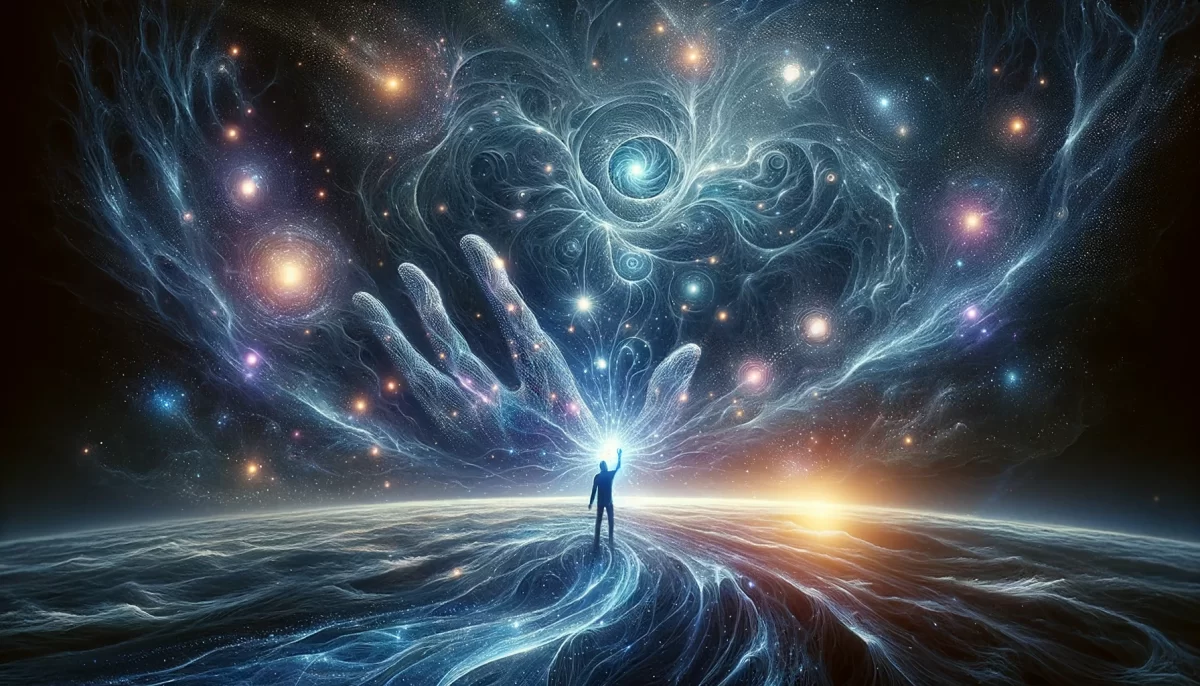
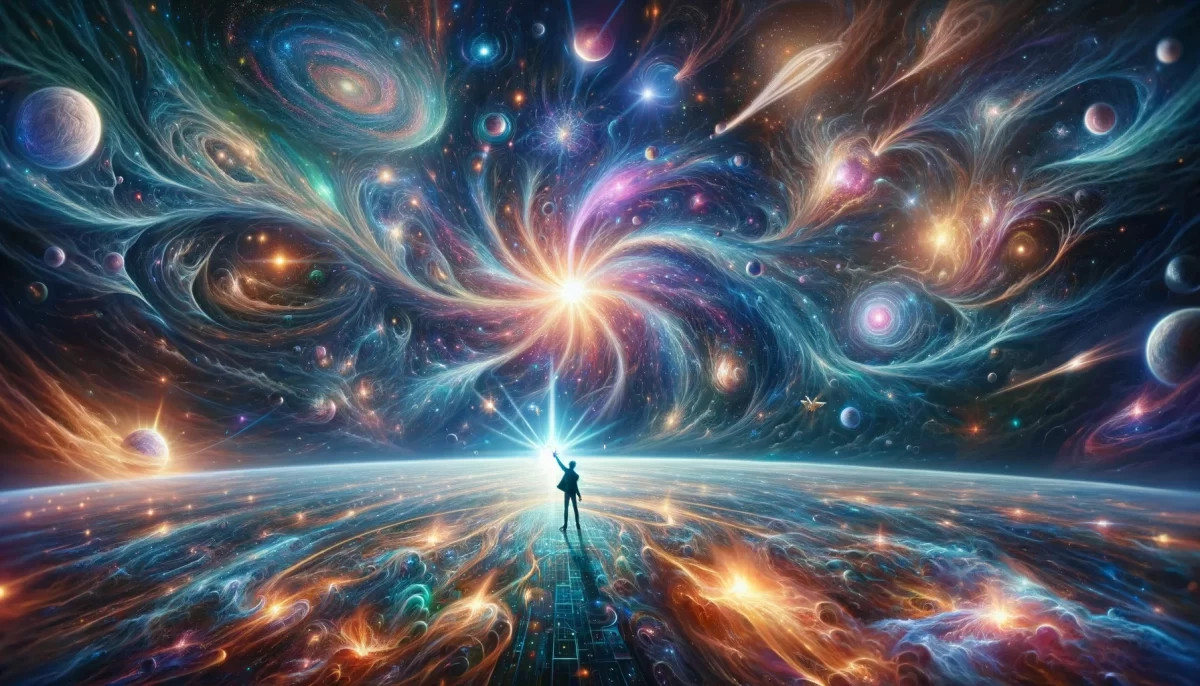
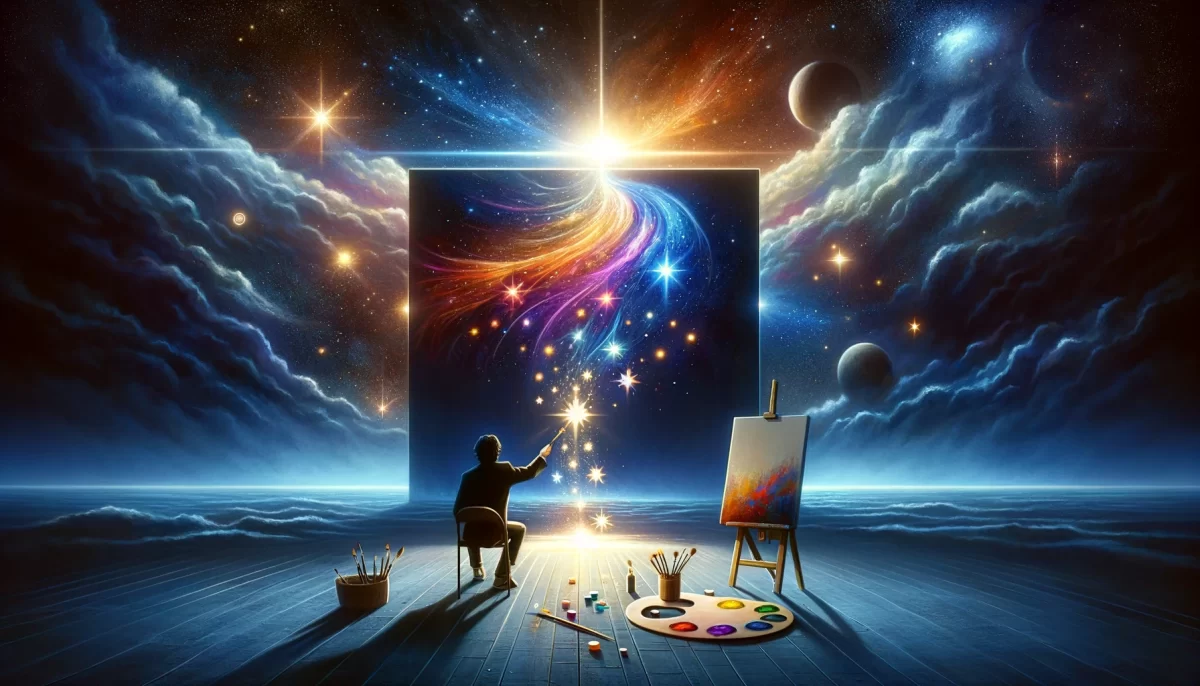
This passage seems to be exploring the idea that our perception and thoughts about certain actions or behaviors can be more harmful than the actions themselves. It suggests that if we can change our perception and thoughts about these things, we can either overcome the problem or fully experience it without the negative impact it may have on us. The passage also touches on the idea that all matter is imagined by our consciousness, which suggests a belief in the power of our thoughts and perception to shape our reality. Overall, the passage seems to be encouraging a shift in perspective and a willingness to take responsibility for our own thoughts and reactions to certain situations.